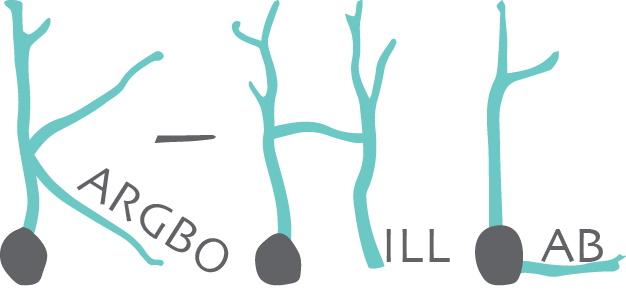Mentoring Philosophy
As a mentor, I strive to provide a supportive training environment so that each lab member can reach their greatest potential. I work with each student and adapt my strategies to best assist them. As a trainee, I mentored 9 students at different career stages and from different backgrounds. These experiences have highlighted how each student learns and is motivated differently.
My mentoring style is a hybrid between hands-on direct mentorship and building the independence of my trainees. For each person that joins my group, I set expectations both in conversation, and in a welcome packet that describes our lab code of conduct. This is a living document that lab members help form establishing rules of common respect, inclusivity, and creating a supportive environment. I also have regular one-on-one meetings with each member of my lab to discuss their project and longer-term motivations and goals. This helps us work together to adjust and tailor projects as needed.
For postdocs, I will provide guidance early on, but then offer greater freedom for them to develop an independent line of research. For graduate students, I will work with them to develop their dissertation project. I will also pair graduate students and postdocs with undergraduate mentees, so that they can learn to be mentors under my guidance. Each postdoc or PhD trainee will write the first draft of at least one manuscript while in the lab to learn how to construct a paper. For undergraduate trainees, I will foremost encourage learning and exploration. At all stages, I emphasize a strict policy of scientific integrity and honesty above all, valuing effort over results.
Being an effective mentor is one of the most critical duties of a lab leader. I will invest in my trainees by committing to their scientific training, networking, and career development. I will also take an active role by continually examining these processes, and inviting lab members to help identify areas where we can improve.
Diversity, Equity, and Inclusion
Increasing diversity in science accelerates innovation. People with different identities and lived experiences bring unique perspectives to tackle new challenges. The value added in creating and working with diverse teams cannot be underestimated. My experiences of being different have exposed me to ways that our systems were not designed for everyone. My goal as a faculty member is to help lower barriers through mentoring and outreach. I consider it a central part of our duty as scientists and leaders to create diverse, equitable, and inclusive environments in our labs, classrooms, and wider communities.
As a lab leader, I welcome people of all genders, underrepresented minorities, international scientists and any other distinctions. I strive to create an inclusive environment, and intentionally make space for quieter voices so that everyone can feel that their voice is valued. Trainees may experience challenges along the way that hinder their progress towards their goals. I aim to build supportive working relationships with my lab members, to advocate for them and help enable their success.

